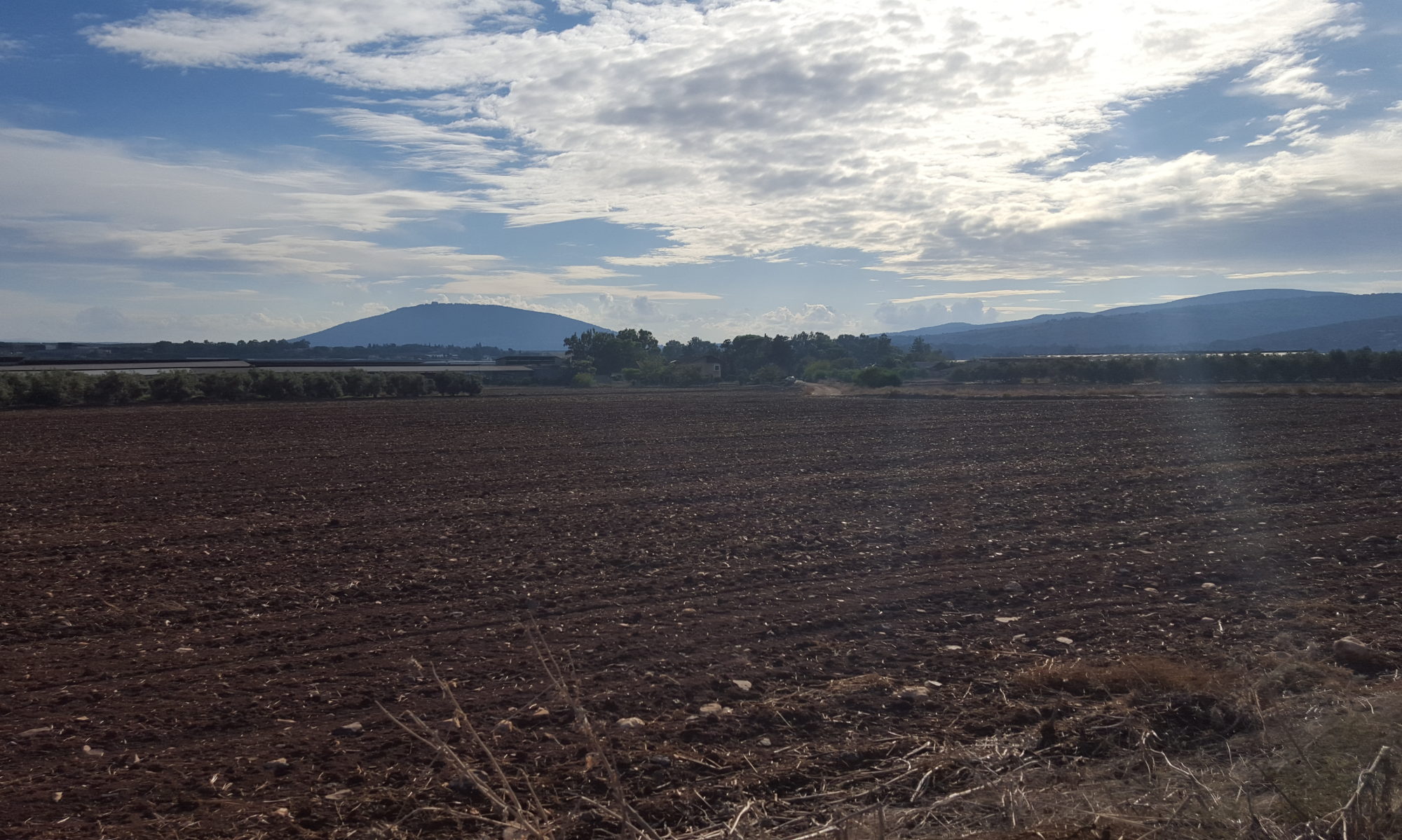I bought a container of milk the other day and the expiration date was 6/8. That’s our moving day, and all of a sudden this all became very real. So real that as I placed an Amazon order just now — though delivery date says under two weeks — I typed in our new address (which is a non-address, by the way: just “Weissman, Sde Ilan” — that’s how small the moshav is), just to be safe.
Some shelves are coming down, and some furniture is gone, as if we’re a stage crew dragging our feet reluctantly through the task of tearing down the scenery of a much-loved, long-running show that’s had its final fun. Yet I’ve also attacked our stuff with a sort of vengeance: I’ve purged, sold, kicked curbside and gifted much of the detritus that nine people can accumulate over years, so much so that I had casually chucked a set of drossy travel candlesticks, rescued from the dump by a kind neighbor who polished the silver and returned them, having found them embossed with our initials. Maybe it’s a lesson that I shouldn’t be so cavalier with “tossing the old, embracing the new.”
I gave my last shiur (for a while, at least) this past Tisha b’Av. That was terribly sad for me — who knows when I will be able to articulate myself in Hebrew to the level required to start teaching again? Or if that will ever even happen?
Around a year and half ago, I spoke for a while with a rabbi from Tzfat. He was born and raised in Memphis, and then learned for many years in the Gush. He moved to Sde Ilan to serve as the moshav’s rabbi for eight years, becoming more and more Breslover until the lure of Tzfat drew him to the upper Galil. This rabbi advised us (warned us?) that moving from the Merkaz to Sde Ilan would be like making aliyah all over again. The more I think of what’s in store, the more I appreciate his comparison.
If the moed of Tisha b’Av essentially requires one to face reality head-on and doesn’t allow for compromise or retreat into comforting artifices, then this Tisha b’Av represented, on a personal level, the awareness that it is extraordinarily difficult to break away from the lives that we’ve built for ourselves, no matter how much glee I’m getting from filling garbage bags with all of this stuff that we just don’t need. I watched a few minutes of the Nefesh b’Nefesh feed via Facebook this morning, marveling at how people, entire established families, wriggled right before my eyes out of the cocoons they’ve known their entire lives to open their wings for the first time into a brave new world. We’re deeply in their shadows, the scope of our move far less drastic than bonafide aliyah — but I do feel a shared experience when looking at a mother’s face as she descends the plane, profound excitement and anxiety mingling in the tremble of her smiling mouth.
Tu b’Av, “the holiday of love,” is a few days from now. Tisha b’Av brooks no avoidance of facing the magnitude of what we have lost and what we stand to lose. Yet built into the timeless rhythm of our moadim, appointments with time that connect us with the Borei haOlam (the Creator), is the release of Tu b’Av. Tu b’Av requires that we emerge into nechama, living a brand new paradigm, finding comfort even within the difficult (sometimes agonizing, sometimes exhilarating) journey from the past to the future.
These liminal days between Tisha b’Av and Tu b’Av mark (for me, at least) a huge settling into a new paradigm, a dawning realization that this is, indeed, it. The days are picking up speed and rumbling fast towards closing a hugely significant chapter in our lives. Here is the challenge that I’ve laid out for myself: hold on fast to these moments, don’t hurry to the next unwritten chapter — don’t just chuck everything out (though most does have to go — really, how many copies of The Revolt does one family need? We must have had five.) Sit for a long time at the cafe to breathe in the Jerusalem evening air, and don’t take for granted that you’ll be able to come back any time the mood strikes. Savor the Judean desert sunset, such a given over these last years, since it won’t be part of your landscape anymore. Most importantly, in the mad whirl of farewell parties and spontaneous drop-ins, be present with the close friends and wonderful people who have made up your day-to-day world for the past number of years — and make sure to bring them along with you in your memories, as you face the blank pages of the new chapter you’re about to write.

We admire your bravery in starting a new life again in Eretz HaKodesh. You have made a huge contribution to the Maale Adumim community and will be missed by all. Jonathan once asked us about how we decided to take “risks” in our lives. We never saw them as a risk, but as an adventure into something new.
Wishing you a wonderful new adventure with your beautiful family.